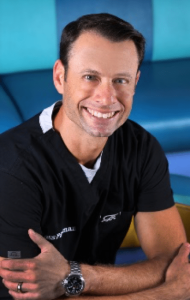Fishman Pediatric Dentistry Discusses Tooth Eruption

One topic where I get asked questions daily at my office, Fishman Pediatric Dentistry, are those involving permanent (adult) teeth eruption. The majority of these questions fall into three areas, addressed below.
Before we answer these questions, let’s start with some basics. Although hard to believe, first adult molars and central incisors form shortly after birth. By the time the child is 5, almost all your permanent teeth (except wisdom teeth) have begun development. Ever see a child’s panoramic X-ray (ADA recommended at age 6)? It looks like our children’s mouths are little tooth factories!

When will my little one lose his or her first tooth?
Previous research has shown the average age to lose your first tooth is 6 years old, and I tend to agree. There are patients who have lost teeth as early as 4 years old or as late as 8 years old in my office, so don’t fret if your child is not “on time.” The new permanent incisor causes the root of the baby tooth to melt away, leaving a loose crown that eventually falls out. Lower central incisors are usually (~95%) the first ones to be lost, just like their baby versions were the first to come in. Many times, we see these teeth come in behind the baby ones, but most move forward once there is room.
Why is it taking so long for a certain tooth to come in?
Dental research has shown it takes a tooth six weeks to erupt for every 1 millimeter of soft tissue covering it; six months for every 1 millimeter of bone. There are, however, several different reasons teeth can be delayed:
Baby tooth is lost early due to a larger adult tooth coming in next to it. I commonly see the adult central incisors (front two) come in big and spaced out, resulting in loss of baby lateral incisors (side ones) early. It may be a year and a half before the adult lateral comes in.
Over-retained baby tooth. Some baby teeth are stubborn and don’t fall out, or the child does not actively wiggle it. I usually tell the child to wiggle and twist as much as possible to prevent this.
Extra tooth blocking an adult one. This is fairly rare, but it requires oral surgery if unerupted.
Grinding. It just slows things down. (Another topic for another month)
Missing tooth. Also rare, this occurs when the adult tooth never forms.
Previous avulsion. If your child had a baby incisor knocked out from trauma, then it may take longer than average for it to come back, as it now must navigate through solid bone without the baby tooth’s root to guide it. Let Fishman Pediatric Dentistry answer some of these questions for you.
How many baby teeth are left? (a.k.a Is my child ready for braces?)
Most of the time (~80%), children can start braces once all their baby teeth are lost. The average age for loss of the last baby tooth is 12. Some children require early braces (Phase 1) if they have severe crowding, underbites, etc. Patients in my office receive an orthodontic assessment at every visit so the parents know where their child stands.
 About the Author
About the Author
Dr. Ross H. Fishman, DMD, MS of Fishman Pediatric Dentistry received his Doctorate of Dental Medicine from the University of Florida College of Dentistry and has been providing dental care to children in Jacksonville, the Beaches, and St. Augustine areas since 2009. Dr. Fishman is Board Certified by the American Board of Pediatric Dentistry. He is also a member of the American Dental Association, Florida Dental Association, the American Academy of Pediatric Dentistry, and the Florida Academy of Pediatric Dentistry. Dr. Fishman is a Partner in Education at several local elementary schools, and he enjoys teaching the children in our community about the importance of dental health.
Dr. Fishman and his wife, Gina, have two children. In his spare time, Dr. Fishman enjoys golf, running, and going to the beach and zoo with his family. Dr. Fishman and his wife are also involved with the Ronald McDonald House Charities of Jacksonville.

















